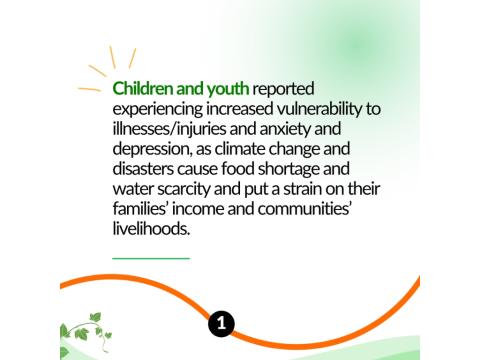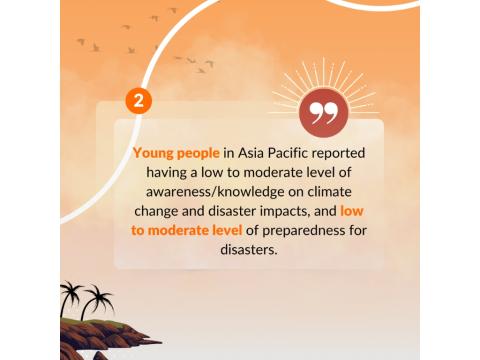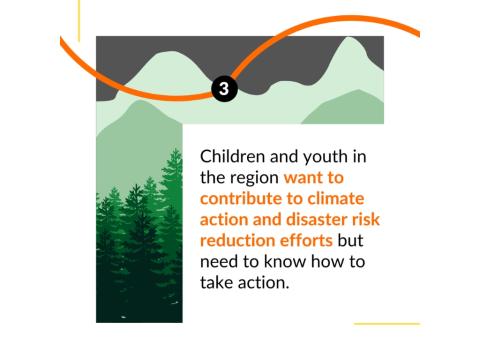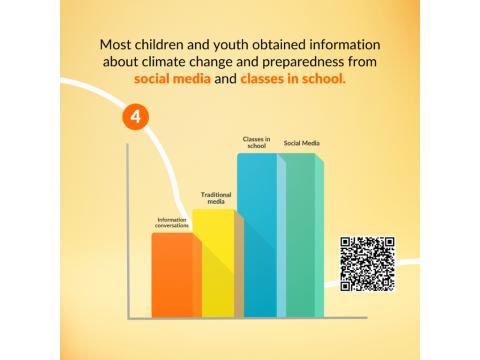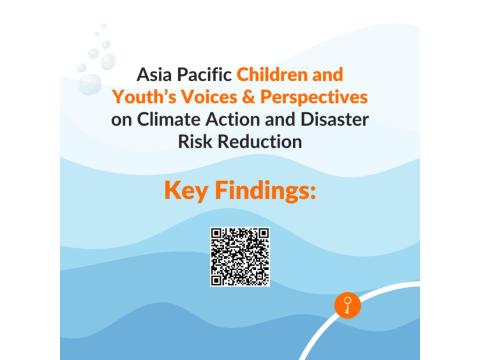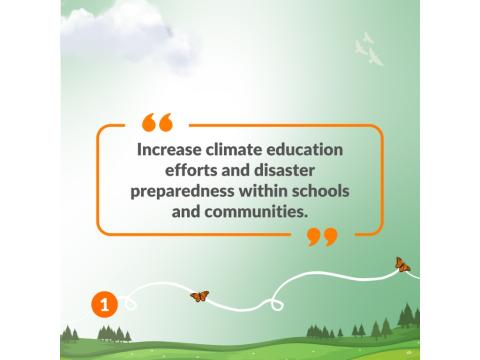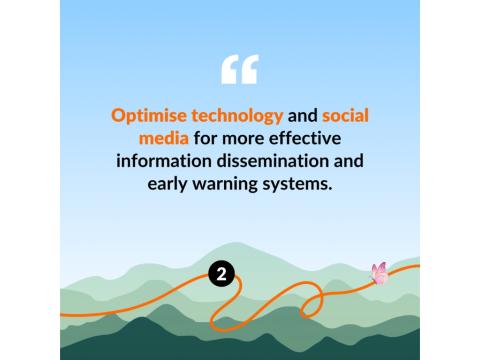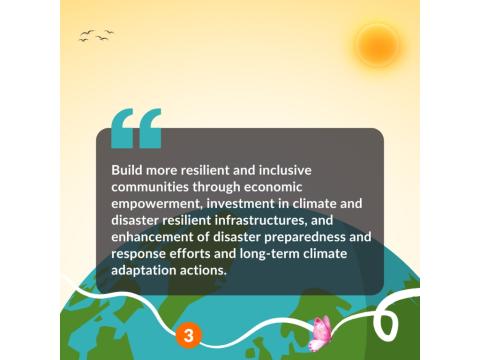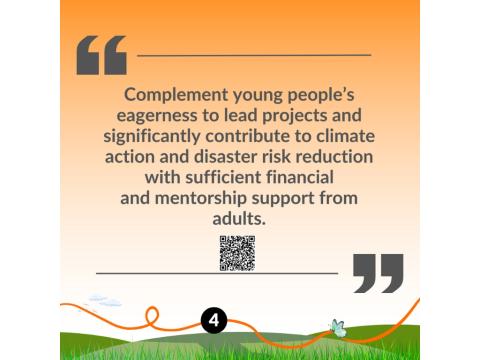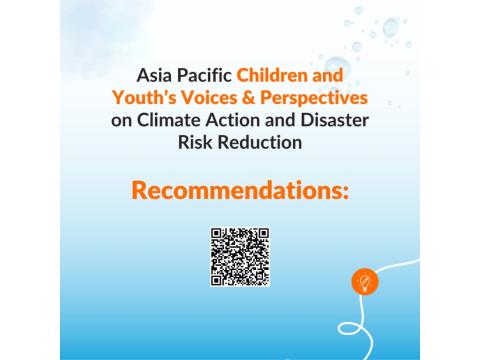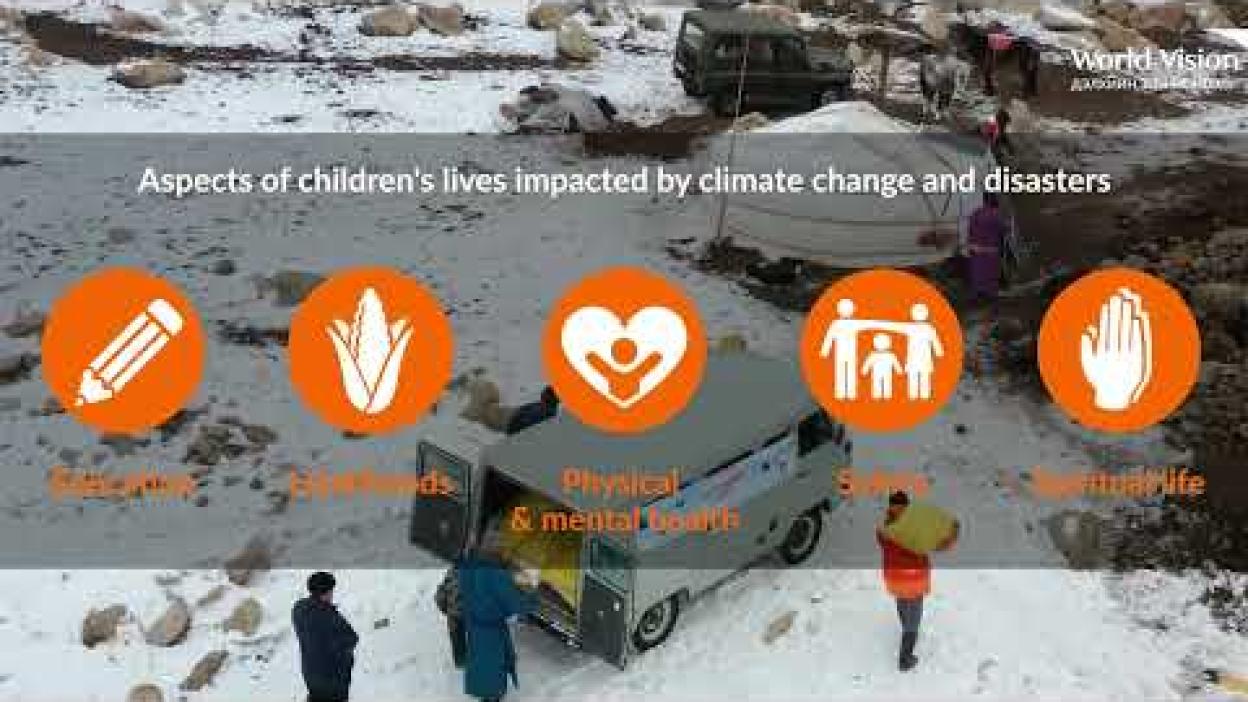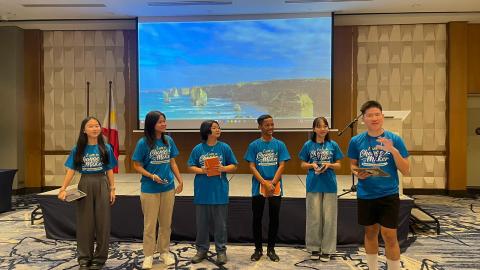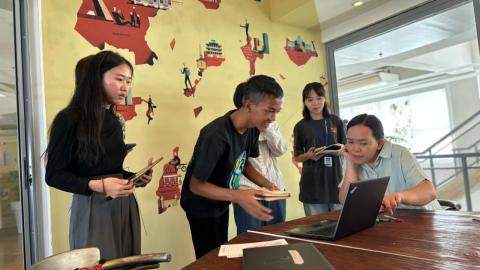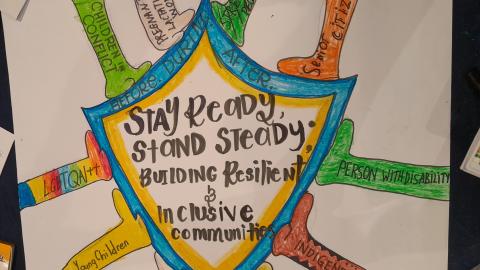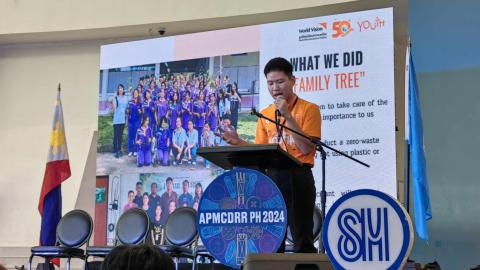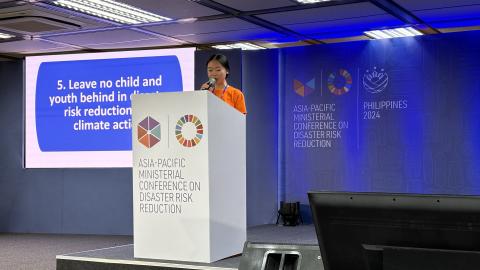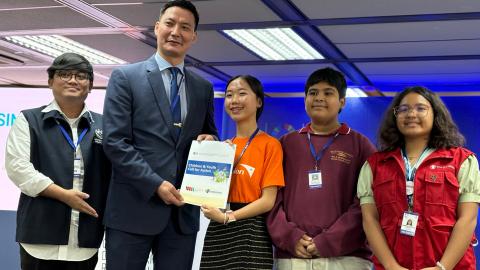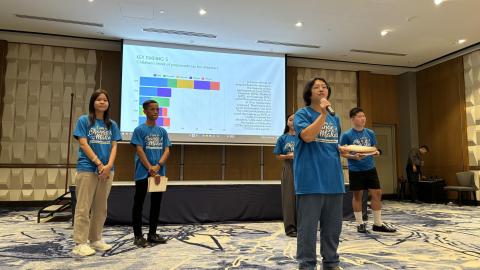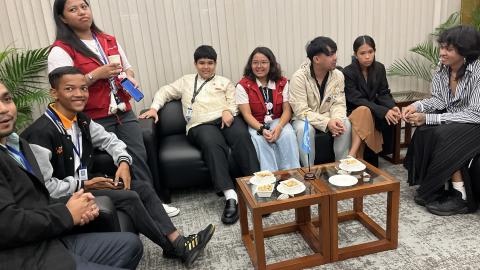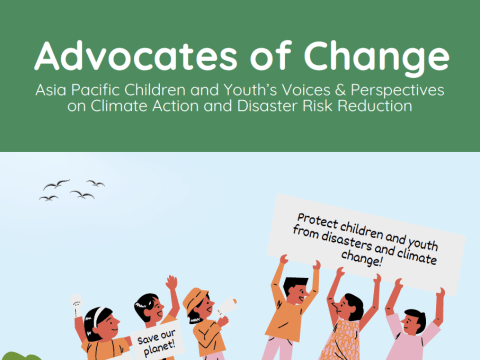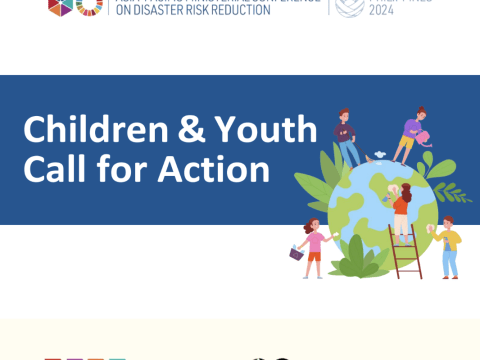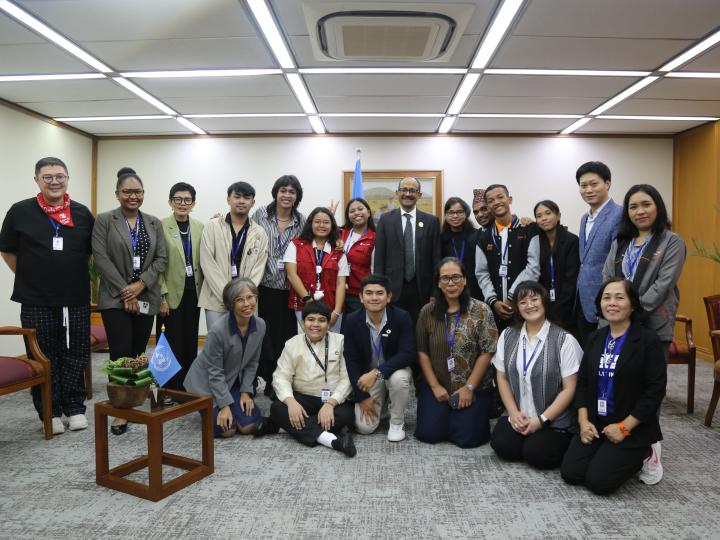
Children and Youth at the APMCDRR2024
Children and youth from East Asia amplifying the voices of their community and peers at the 2024 Asia Pacific Ministerial Conference on Disaster Risk Reduction.
Six children and youth representatives from World Vision's programmes in five East Asian countries including Laos, Cambodia, Thailand, Myanmar and Mongolia came together to present the findings of the child-led research report "Young Minds Shaping Climate Action & Disaster Mitigation for a Sustainable Future” to decision-makers at the 2024 Asia Pacific Ministerial Conference on Disaster Risk Reduction.
This year, the WV EAS child-led research report and the APMCDRR joint children’s consultation report consolidated the concerns and recommendations of children who are among the most vulnerable to climate shocks.
The Asia-Pacific region is impacted by extreme vulnerability to disasters, worsened by climate change, and is home to 42% of the world’s children and youth. About 200 million children are impacted annually by environmental crises. From disrupting schooling and displacement to impacting their families' livelihoods, access to food, and mental health, children face the brunt of climate change's impact.
Platforms like the Asia-Pacific Ministerial Conference on Disaster Risk Reduction (APMCDRR) are critical to accelerating disaster risk reduction (DRR) initiatives, especially for young populations. As future leaders, their innovative ideas and first-hand experiences are vital for shaping resilient communities.
Children share key concerns & recommendations to address increasing disaster and climate risks at the AMPCDRR.
The children and youth at the event raised their concerns about natural hazards and climate-induced disasters, disputing their access to education. Six million children in Southeast Asia alone were deprived of education due to the damage caused by Typhoon Yagi. They also emphasised the need to spread disaster preparedness information via social media platforms and for governments to harness the power of digital engagement to disseminate critical warnings.
Children and youth stressed upon the challenges their families suffer due to food shortages and water scarcity caused by climate-related events and appealed for more investment in climate-smart agriculture and disaster-resilient infrastructure.
Findings from the Consultation with Children
Key Recommendations from Children
In Asia Pacific, children, especially those with disabilities, minorities, and the marginalised, face the most severe impacts from disasters and climate change. Over 210 million face cyclones, 140 million face water scarcity, and 460 million face air pollution, with many forced to migrate, disrupting their lives and exposing them to risks. Children and young people are aware of the impact of inequality and inequity caused by disasters.
Despite being among the most vulnerable groups affected by disasters, children demonstrated their eagerness and readiness to participate and lead in disaster preparedness initiatives and decision-making meaningfully. However, they feel a lack of financial and mentorship support stifles their potential. They called for prioritising investment in child-led initiatives and youth participation in decision-making so that their ideas could be turned into actionable and impactful solutions.
As per the findings of the consultation with children in conflict zones, those with disabilities, and orphans are disproportionately affected by climate-induced disasters and are often forgotten. Children and youth emphasised that no child should be left out of the conversation about Disaster Risk Reduction and Climate Action and ensure their voices are heard.
Children’s Voices Heard @ APMCDRR
As a result of their research and consultation, World Vision’s children and youth representatives, along with other peer organisations, creatively presented their five statements, based on their call for action, to UN stakeholders and government officials. The children and youth research and consultation recommendations were received by the Philippines government and the Mongolia Secretary of State Emergency Commission.
Advocates of Change in Asia Pacific
The contribution of World Vision’s Young Mind’s Camp in East Asia and the children's engagement at APMCDRR was acknowledged by the Deputy Prime Minister Sainbuyan Amarsaikhan of Mongolia.
Colonel Baasansuren Demberelnyam, Secretary of the National Council for DRR, National Emergency Management Agency (NEMA), Government of Mongolia, emphasized the importance of engaging children and youth in decision-making processes. He acknowledged World Vision for its dedicated efforts in supporting children’s participation and research, citing the work of WV child leaders Baaska and peers. Baaksa, from Mongolia got the opportunity to interview the Deputy Prime Minister on Young Mind Camp and DRR. She also handed over the “Call to Action” and “Advocate to Change” documents to the Mongolian Government.
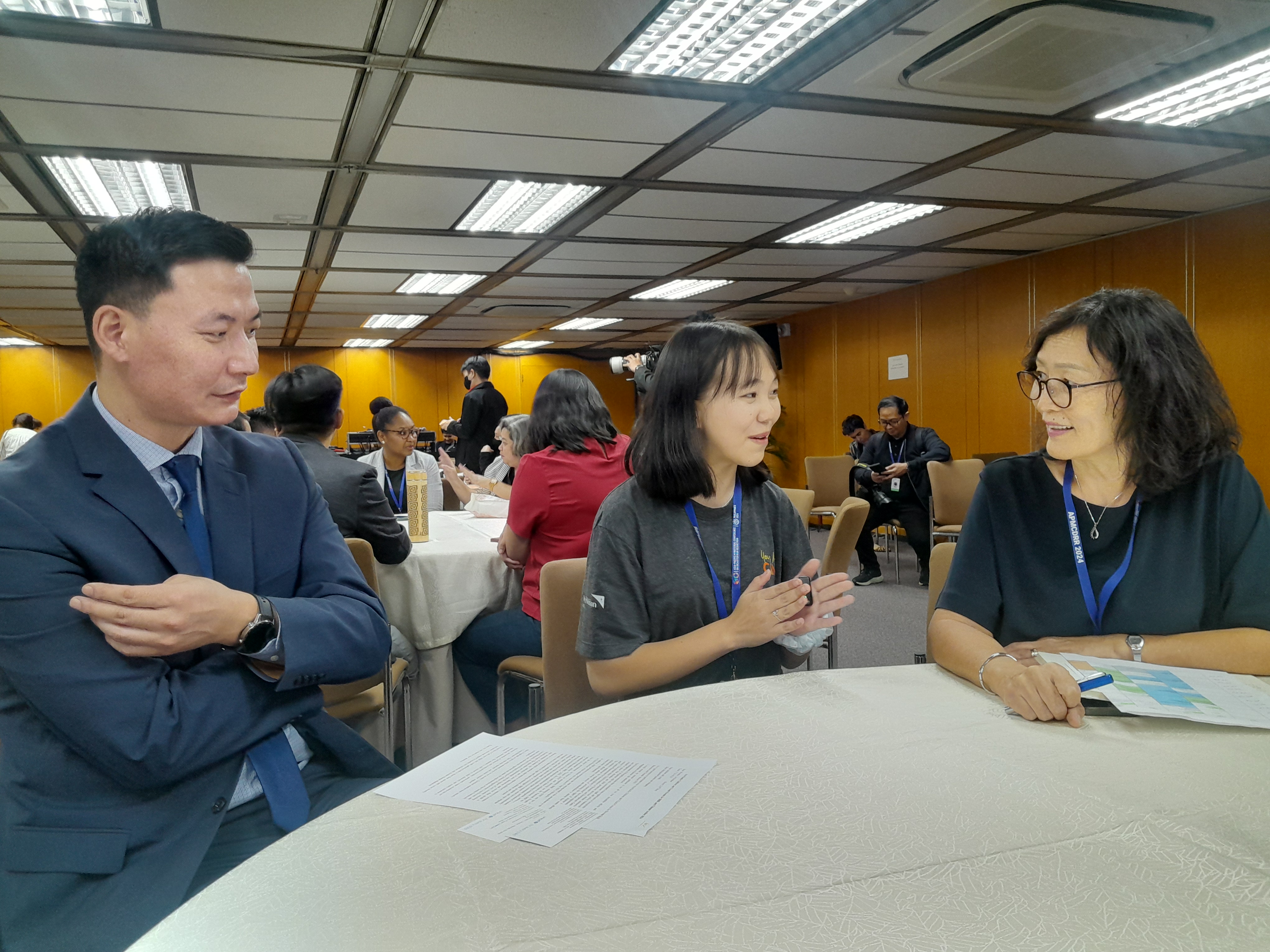
In collaboration with the Asia Pacific Coalition for School Safety, World Vision was able to secure a meeting with Kamal Kishore, the Special Representative of the United Nations Secretary-General (SRSG) for DRR and nine children and youth delegates.
Narin, the WV child representative from Cambodia, was among the nine youth delegates who got the opportunity to participate in the closed-door meeting, where he urged leaders to take decisive action in two critical areas - investment or funding for inclusive early warning forecasting systems and increase in budget allocations for climate action and disaster initiatives focused on children and youth.
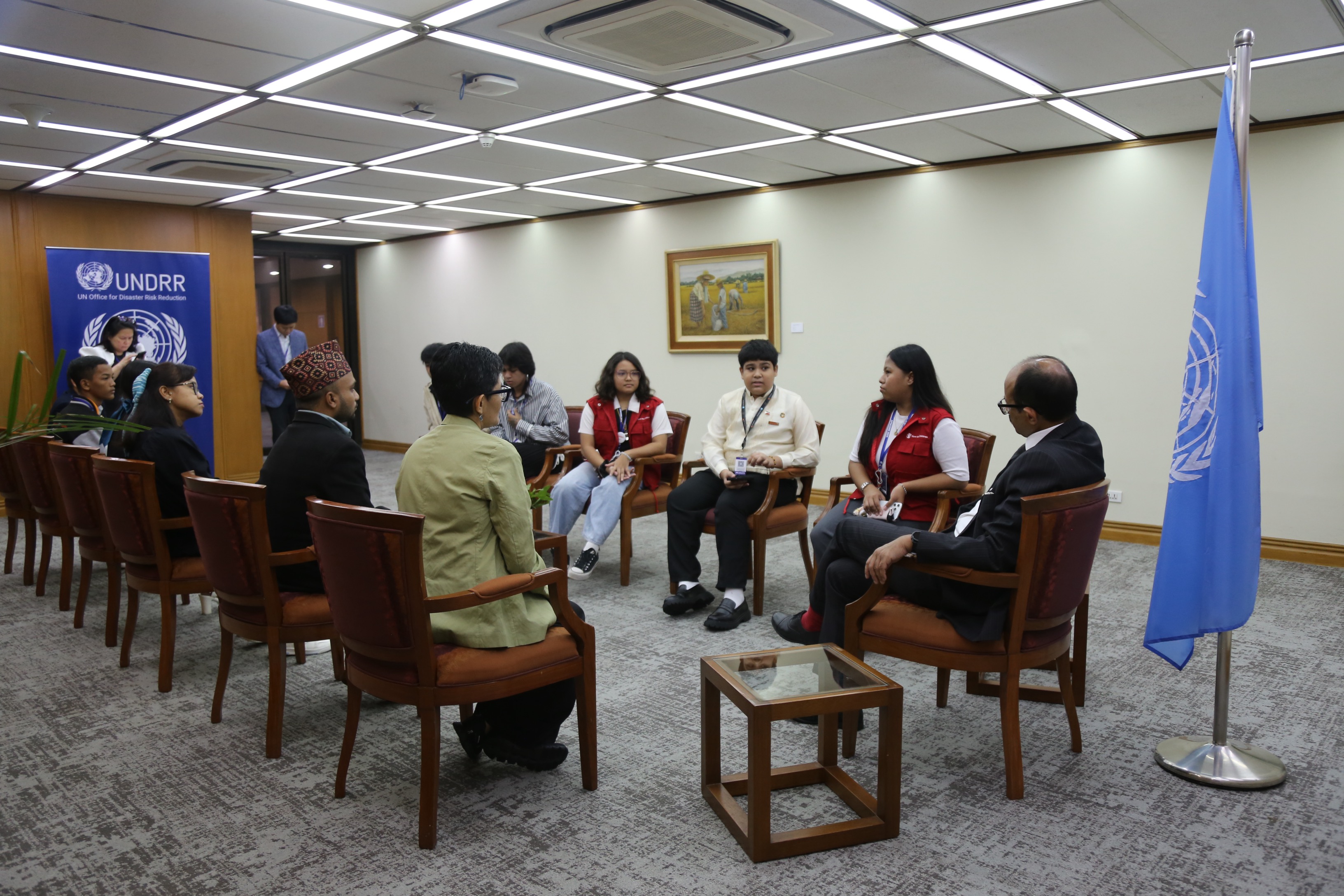
Children and youth delegates also promoted youth engagement in Disaster Risk Reduction and Climate Action at the APCSS member booths, interacting with participants from various organisations.
Way Forward: Youth-Led Change for a Resilient Future
APMCDRR is not just a platform for discussion—it’s a call to action. The survival and future of millions of children depend on meaningful inclusion of climate and disaster policies. Empowering youth with the tools, resources, and platforms to lead is a step in the right direction. Without their voices, the fight against climate change will be incomplete, and the future uncertain.

